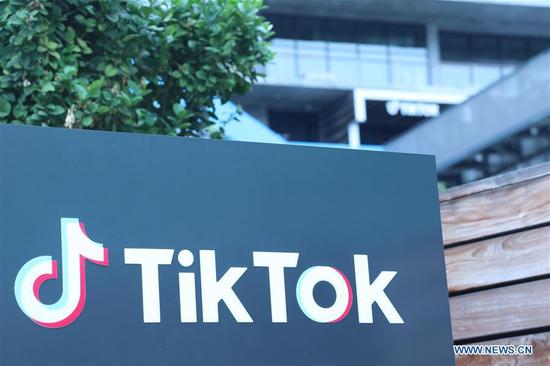TikTok's fast return proof of acceptance
Experts say restoration shows the app's commercial value in the U.S.
The comeback of TikTok, a popular social media app owned by Chinese tech company ByteDance, in the United States after a brief weekend outage signals the video-sharing site is capable of seeking out solutions through consultation and cooperation to ensure its legal operation in the face of regulatory challenges in the country, experts said on Monday.
The move demonstrates that TikTok's immense user base and commercial value have been recognized by the U.S. market despite policy uncertainty, given that social medial platforms are playing an increasingly vital role in reshaping people's daily lives in the digital era, they added.
Their comments came after TikTok restored its services in the U.S. after then president-elect Donald Trump said he would issue an executive order on Monday, the day he was sworn in as U.S. president, to revive the app's access in the country.
"In agreement with our service providers, TikTok is in the process of restoring service," the company said in a post on social media platform X.
"We thank President Trump for providing the necessary clarity and assurance to our service providers that they will face no penalties providing TikTok to over 170 million Americans and allowing over 7 million small businesses to thrive."
Trump wrote on his Truth Social platform on Sunday morning that he would "issue an executive order on Monday to extend the period of time before the law's prohibitions take effect".
The order would also confirm that there will be no liability for any company that helped keep TikTok from going dark before the order was issued.
Trump proposed a scenario in which the U.S. would own half the popular social media app.
"I would like the United States to have a 50 percent ownership position in a joint venture," Trump wrote.
In response to TikTok's resumption of services in the U.S., Chinese Foreign Ministry spokeswoman Mao Ning said at a news conference on Monday that China has always believed companies' operations and acquisitions should be based on market principles and be decided by the enterprises themselves.
If Chinese enterprises are involved in such actions, they should comply with Chinese laws and regulations, Mao said.
The U.S. should listen carefully to rational voices and provide an open, fair, just and non-discriminatory business environment for market entities from various countries operating in the U.S., she added.
Zhu Keli, founding director of the China Institute of New Economy, said against the backdrop of a complicated international situation, the restoration of TikTok's services in the U.S. could be regarded as a positive signal, as it not only meets the demands of U.S. users, but is also conducive to bolstering openness and cooperation in the global digital economy landscape.
"TikTok should continue to strengthen communication and cooperation with the U.S. government and relevant regulatory authorities to ensure that its businesses comply with U.S. laws and regulations. Moreover, it needs to continuously improve technological and management capabilities to respond to market changes and challenges from rivals," Zhu said.
He said Trump's 50 percent ownership proposal may help address the U.S. government's security concerns over TikTok.
"However, the negotiation concerning equity allocation will be complex and sensitive, and requires full trust and cooperation from both sides," Zhu said. "The operation and management of the joint venture will also face some challenges such as cultural differences and decision-making efficiency."
Jiang Han, a senior analyst at market consultancy Pangoal, said TikTok's rapid restoration showcases U.S. users' dependence on and demand for TikTok, adding that the platform should reinforce compliance capacity to satisfy regulatory requirements and improve user experience to maintain its competitiveness and achieve long-term development in the U.S. market.
Jiang said the feasibility of Trump's proposal should be further evaluated and discussed, as more in-depth negotiations and consultations about the equity distribution in a joint venture are needed between the two parties.
TikTok stopped working for its 170 million U.S. users on Saturday night after the U.S. Supreme Court upheld on Friday a law requiring ByteDance to sell the app to a U.S. company or face a nationwide ban that began on Sunday.
Trump said he would "most likely" give TikTok a 90-day reprieve from the ban upon taking office on Monday.

